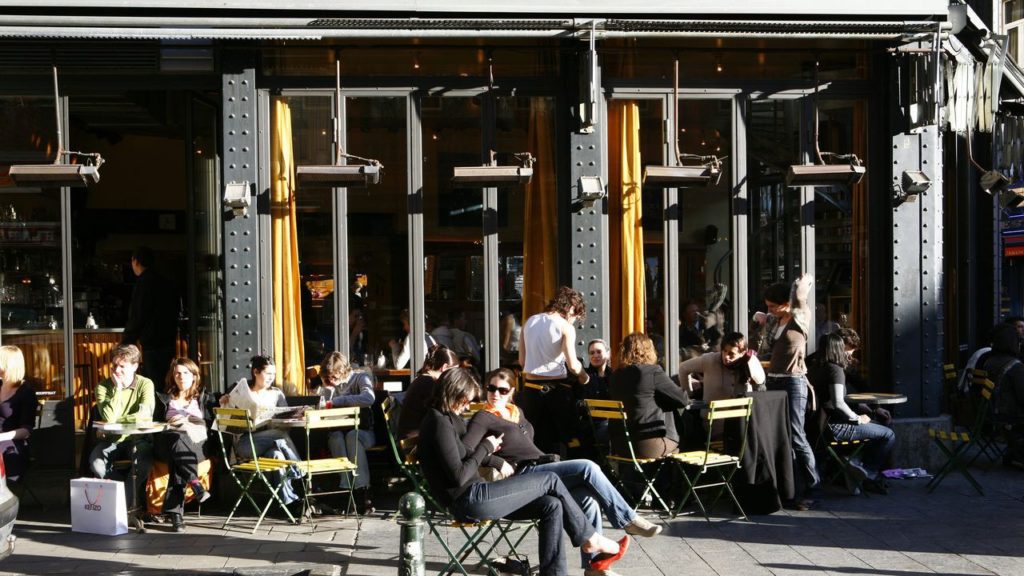While hairdressers reopened last weekend, several politicians and experts have already made suggestions about possible next steps in the process of lifting Belgium's lockdown measures.
As Belgium's coronavirus infection and hospitalisation figures are decreasing slowly and the vaccination campaign is picking up steam, conversation have turned to which measures could be relaxed next, and when.
More freedom for students and culture in March?
The government is not going to work on a calendar, but on a programme of reopenings, according to Federal Economy Minister Pierre-Yves Dermagne.
"Sector by sector, activity by activity, we want to be able to set a course and give prospects," he told RTBF on Monday. "We will now have to work in phases. We already know that we have a first date on 1 March, with the reopening of the contact trades other than hairdressers."
In the runup to the Consultative Committee, the authorities also want to work out creative, original protocols in a whole series of sectors for a safe, step-by-step reopening, according to him.
Dermagne also said that he and his party (the Francophone socialist PS), want to prioritise young people. "In universities and colleges, we want to give students the opportunity to physically return to class on campuses."
He also stressed that it is "important to see what can be done for the cultural professions," adding that with the arrival of spring, some more activities should be possible.
"Initially, all outdoors probably, but also allowing cultural and artistic activity to regain a place in society," Dermagne added.
"We are aware of the growing exasperation with the measures, and of the distress of young people," Federal Minister for Pensions and Social Integration Karine Lalieux said on Walloon radio, adding that "The efforts required are very hard, but it is to regain our freedoms."
Opening restaurants or terraces in April?
Lalieux is hoping for relaxations to the measures in April, but also stated that she cannot give a date. "We are going to move towards relaxing rules at the same rate as we are going to vaccinate the most vulnerable," she said.
"I really hope that in the month of April, we can catch our breath again, especially with the better weather. I hope that at least the terraces of cafés and bars can be open," Lalieux said, adding that Belgium is not experiencing a third wave, "unlike other European countries."
According to the leader of the Francophone liberal MR party, Georges-Louis Bouchez, the reopening of the country's restaurants should be the first relaxation to come.
After the reopening of the hairdressers last weekend, Bouchez' priority is to let the other people in contact professions get back to work. “Then, we will wait two or three weeks to see what the impact of that is, and then we can focus on the restaurants,” he told the Sudpresse newspapers on Monday.
“We are considering a reopening in the spring,” he said. “And spring, it starts on 21 March,” said Bouchez.
Lifting the travel ban?
Even though Belgium's ban on non-essential travel to and from the country was recently extended until 1 April, Walloon Minister-President Elio Di Rupo said that it could be lifted before that.
“The measure was taken to avoid seeing our fellow citizens go on winter sports holidays, with the consequences that we experienced last year,” explained Di Rupo, adding that the situation will be re-evaluated on 26 February.
“I do not exclude the ban being lifted. But it could remain ‘strongly recommended’ not to go abroad," he said.
What do the experts say?
However, while several experts - including interfederal Covid-19 spokesperson Steven Van Gucht - have repeatedly stressed that Belgium can be proud of its figures, they remain very cautious about possible relaxations in the near future.
“There will come a time when it will be possible to either open the restaurants, or resume cultural life, or let the sports competitions resume, or allow people to welcome guests into their homes," virologist Marc Van Ranst told Het Laatste Nieuws this weekend.
"However, we can only authorise one relaxation at the start, so we will have to choose," he said, adding this will be a difficult political decision.
"The government will decide which comes first: go to a bar again, or visit grandma," Van Ranst said, adding that it is difficult to put a date forward, mainly because of the new coronavirus variants.
“One thing is certain: at the moment, it is absolutely still too dangerous to relax," he said. "And that is what the GEMS experts told the government."
French-speaking epidemiologist Marius Gilbert shares Van Ranst's opinion, who told Le Soir that deconfinement in May is a "realistic" scenario, depending on the progress of the country's vaccination campaign.
"The transmission is at a stable level for the moment," he said. "It would be more comfortable to deconfine if the figures are decreasing, so we would have a certain leeway."
Like Van Ranst, Gilbert stressed that lifting the measures has to be done in "an extremely gradual manner. Whenever we are going to deconfine something, do it with great caution."
Belgium's Consultative Committee will meet again on Friday 26 February, where a roadmap on how to handle the following phases of the pandemic - taking into account the number of infections, hospitalisations and deaths, as well as the vaccinations - will be discussed.
The measures for the hospitality industry, the culture and events sector, and the sports and activities sectors will be on the agenda, according to Flemish Minister-President Jan Jambon. “However, that does not mean that any relaxations will automatically be possible from then on.”
Maïthé Chini
The Brussels Times

